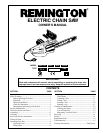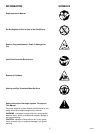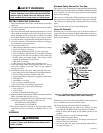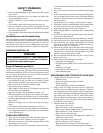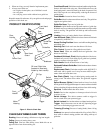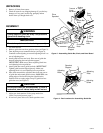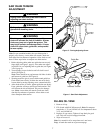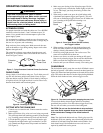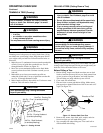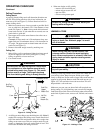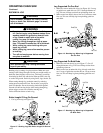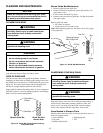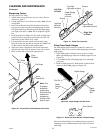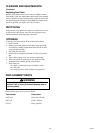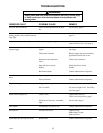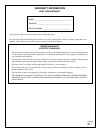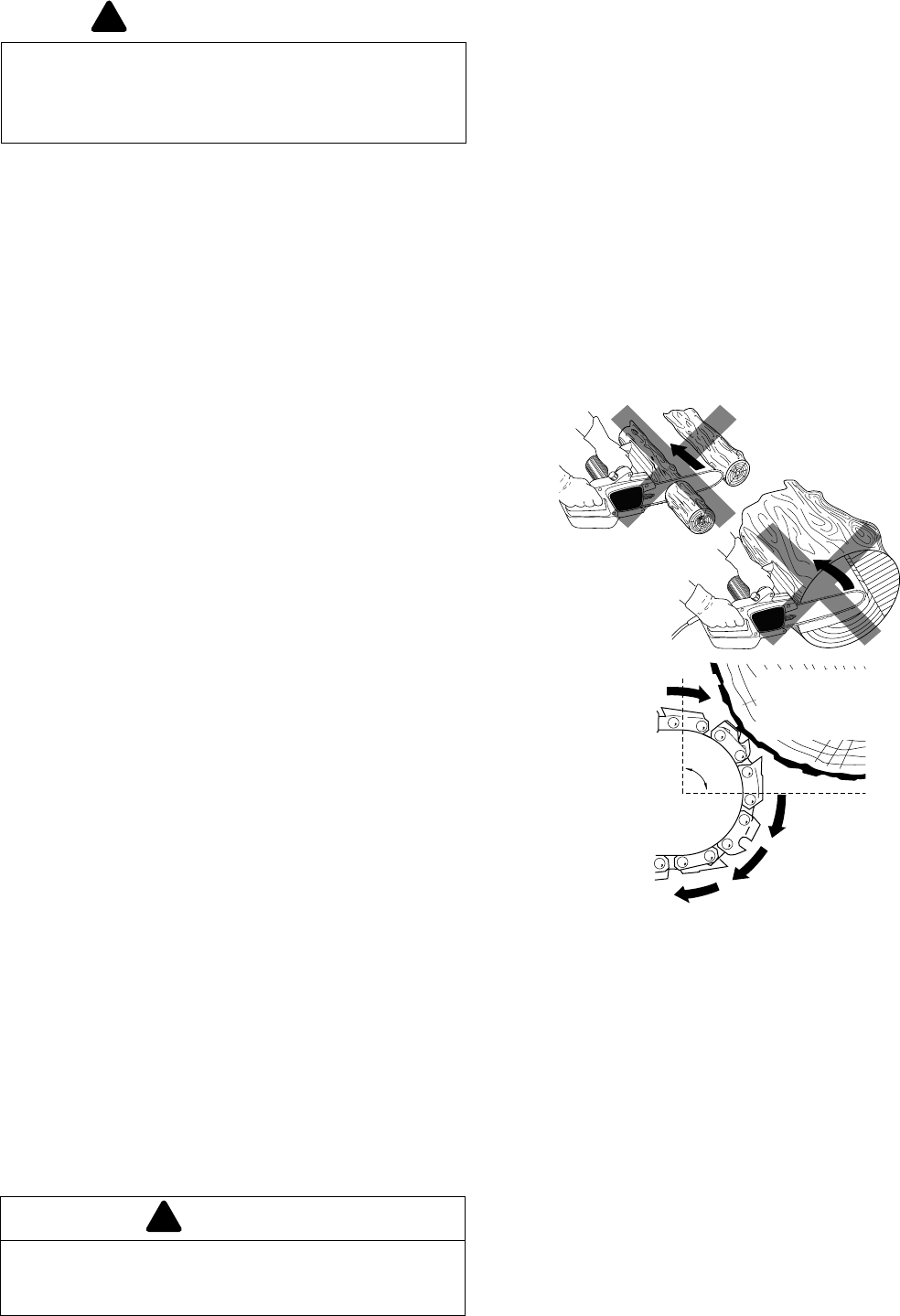
3
3
100273
BEFORE OPERATING CHAIN SAW
1. Read and understand this owner’s manual before operating
chain saw.
2. Use chain saw for cutting wood only. Do not use for cutting
any non-wood items.
3. Only well-instructed adults should operate chain saw. Never
allow children to operate chain saw. First-time user should
obtain informed, practical instruction in addition to reading
this manual. Practice cutting logs on a saw horse or cradle.
4. Use only electrical voltage noted on model plate of chain saw.
5. Use only extension cords marked for outdoor use. See page
8 for extension cord requirements.
6. Do not operate chain saw
• while under the influence of alcohol, medication, or drugs
• in rain or in damp or wet areas
• where highly flammable liquids or gases are present
• if saw is damaged, adjusted wrong, or not fully assembled
• if trigger does not turn saw on and off. Chain must stop
moving when you release trigger. Have faulty switch
replaced by authorized service person.
• while tired or in a hurry
• while in tree or on a ladder unless trained to do so
7. Wear snug-fitting clothes when operating chain saw. Do not
wear loose clothing or jewelry. They can get caught in
moving saw chain.
8. Wear the following safety gear when operating chain saw:
• heavy-duty gloves (wear rubber gloves if working oudtoors)
• steel-toed safety footwear with non-skid soles
• eye protection such as safety glasses, goggles, or face screen
• safety hard hat
• ear mufflers or ear plugs
• hair covering to contain long hair
• face or dust mask (if working in dusty areas)
9. Before cutting, always provide the following:
• clear work area
• secure footing
• planned retreat path from falling tree
10.Inspect tree before cutting down. Make sure there are no dead
limbs or branches that may fall on you.
11.The typical A-weighted noise levels at full load while cutting
wood when tested in accordance to ISO 7182 are:
Sound Pressure Level 95 DB(A)
Sound Power Level 100 DB(A)
12.The typical hand-arm vibration at full load while cutting
wood when tested in accordance to ISO/DIS 7205 is 23.8
M/S
2
.
!
WARNING ICON G 001
SAFETY WARNINGS
Read and understand all Safety Warnings on pages
3 and 4. Improper use of this chain saw can cause
severe injury or death from fire, electrical shock,
body contact with moving chain, or falling wood.
Continued
KICKBACK
!
WARNING ICON G 001
WARNING
Avoid Kickback. Kickback can cause you to lose
control of chain saw. Kickback can cause severe
injury or death.
Kickback Safety Devices On This Saw
This saw has a low-kickback chain and reduced-kickback guide
bar. Both items reduce the chance of kickback. Kickback can still
occur with this saw. Do not let tip of guide bar touch anything
when chain is moving.
This saw has a chain brake. When kickback occurs, the front
hand guard is moved forward by the back of operator’s left hand.
This stops the saw chain quickly, reducing the chance of serious
injury.
Never hold the chain saw by the front hand guard.
Cause Of Kickback
Kickback may occur when nose or tip of guide bar touches an
object while chain is moving. If chain cutter catches on object, a
sudden reverse action will result. The guide bar will kick up and
back towards operator.
Direction
90°
Quadrant
Do Not Let
Guide Bar Nose
Touch Here
Kickback may also occur when wood pinches chain at guide bar
nose. A sudden reverse action will also result.
The following steps will reduce the risk of kickback:
• Use both hands to grip saw while saw is running. Use firm
grip. Thumbs and fingers must wrap around saw handles.
• Keep all safety items in place on saw. Make sure they work
properly.
• Do not overreach or cut above shoulder height.
• Keep solid footing and balance.
• Stand slightly to left side of saw. This keeps your body from
being in direct line with chain.
• Do not let guide bar nose touch anything when chain is
moving (see Figure 1).
Figure 1 - Kickback Hazard Example. Do Not Let Nose of
Guide Bar Touch Object While Chain is Moving



